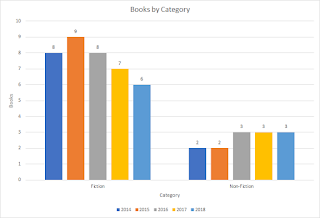We met 15 December to discuss Dicken's A Christmas Carol, & O'Henry's Gift of the Magi
In attendance were
Dave & Mary
Darryl & Barbara
Jack
Alice
Carolyn
Catherine G.
Most of us had read A Christmas Carol at some point prior to this club selection. A few of us who had read it in school did not re-read it for this meeting.
Several readers found the language difficult, partly due to idioms of British English, and partly due to the dated writing style. One example of a simile that the group did not understand from the text was "like a bad lobster in the cellar", referencing the pale glow of Marley's face as seen in the door knocker. Catherine was able to look up a reference for us during the club that explained it, but that's an excellent example of a phrase that did not readily convey meaning in modern American English.
Part of the discussion was the role of food and drink in the story, and the amount of text dedicated to describing them. We speculated that food distribution and availability may have influenced it's importance in this text written in 1843. Water purification would not have been well understood at this time, so beverages that are brewed or steeped might have been the norm for beverages as standing water sources may have been unsafe to drink.
Darryl brought his copy of the text, which had some discussion questions we used for the meeting.
Overall most seemed to find A Christmas Carol to be an enjoyable read, if somewhat challenging language.
The Gift of the Magi was highly thought of by a couple of members, but less well liked by others. In general, the women in our group seemed to enjoy it more than the men. One member reported it was not at all the story he was expecting, as it is focused more on sacrifice and giving, rather than greed as he expected.
Our next selection is Frank Herbert's The White Plague (meeting 16 January), followed by A Trick of the Light by Louise Penny.
There are new entries on the What's Next list, so be sure to check them out. If you have a suggestion to add to the list, please email it to me.
---
State of the Club
We discussed the current state of the book club, and those in attendance seemed happy with how it was going, though we acknowledge we have lost quite a few members. Some have moved away, others have changes in personal circumstance. As far as we know, no one has "rage quit" on us!
The Reading Selection Process
One member proposed a change to the club selection process, wherein members would submit recommendations that would be drawn at random rather than voting on a list of candidates. In general we seem to feel the democratic selection process, with the discussion (and negotiation to a certain extent) works for us, but this raises the possibility that we are suffering from tyranny of the masses, if some members don't feel their suggestions are given fair consideration.
We had decided a while back not to track who made what suggestions, as we felt knowing who made the suggestion might be biasing the selection process, but in this smaller group it is usually pretty obvious who made what suggestion. I will be considering how best to address these concerns about the fairness of the selection process.
The Suggestions List
Since we are beginning year 4 (four years!!) we discussed what kinds of selections we would like to be reading during 2017. Several members expressed appreciation for the biography, history, and memoir selections we have read, and wanted to insure those types of works remain available on the list. One member was interested in seeing greater representation of "classics" (though what was meant by classics was vague) on the list, rather than the concentration of fiction works represented in 2016.
One member expressed she would generally not read biographies, though would consider something about Nickola Tesla.
I will try to be more thoughtful about things I put on the list, and try to insure a range of genres is represented on the list.
One member once commented that she felt the books should be better vetted by the moderator before they are added to the list. I would not want to pre-read every (or, really, any) candidate work, as that would detract from my pleasure in the shared reading experience, but I recognize we have had some duds make it onto our agenda, so perhaps a deeper vetting is in fact necessary.
If folks have feedback to share, or thoughts about what they would like to see or experience in the club during 2017, please let me know!

















